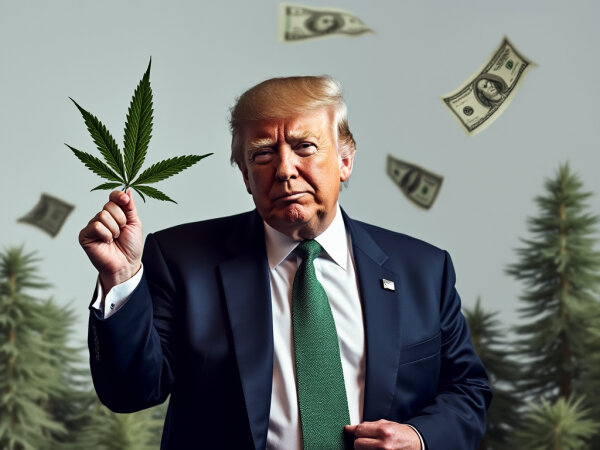Trump’s Second Term Could Advance Federal Cannabis Reform

11/22/2024
As President-elect Donald Trump prepares to enter the White House, many are speculating about his stance on cannabis reform, an issue where bipartisan support has grown in recent years. President Biden’s administration initiated significant policy changes, including recommending the reclassification of marijuana as a Schedule III drug. This shift, aimed at recognizing cannabis' medical benefits, has spurred optimism about its future under the Trump administration.
In the 2024 campaign, Trump expressed support for recreational cannabis legalization, aligning with Biden’s policy trajectory. On Truth Social, Trump wrote, “It is time to end needless arrests and incarcerations of adults for small amounts of marijuana.” He also voiced support for expanding medical research and implementing regulations for safe access, signaling a potential continuation of Biden’s cannabis policies.
This marks a departure from Trump’s first term, during which cannabis reform saw little action. Former Attorney General Jeff Sessions, a staunch opponent of legalization, rescinded an Obama-era policy that deprioritized federal enforcement of cannabis laws in states with legalization frameworks. In contrast, Trump’s second term could feature a more cannabis-neutral or pro-reform administration, as David Culver of the U.S. Cannabis Council anticipates.
The potential for reform extends beyond de-scheduling marijuana. Trump has also suggested support for "safe banking" laws, which would provide financial protections for state-authorized cannabis businesses. This could address longstanding challenges in the cannabis industry, such as access to banking and investment.
At the state level, momentum for legalization continues, although recent ballot initiatives in Florida, South Dakota, and North Dakota failed. Florida’s high-profile Amendment 3 campaign, which Trump endorsed, faced stiff opposition from Governor Ron DeSantis and accusations of promoting monopolistic practices.
Despite these setbacks, cannabis remains a lucrative and growing industry. In 2023, cannabis tax revenues exceeded $4 billion nationwide. Advocates, including Culver, believe Trump could create a regulatory framework akin to alcohol, leaving detailed enforcement to states.
While cannabis reform may not be a top priority for Trump’s administration, his evolving stance suggests it could be a rare bipartisan issue that gains traction during his second term. As the states push forward, federal action under Trump could finally provide a cohesive national policy.







